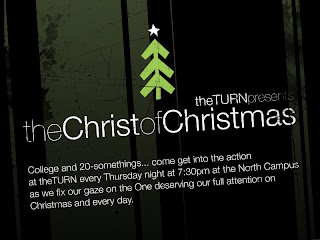Mark 1:35-19:
35Very early in the morning, while it was still dark, Jesus got up, left the house and went off to a solitary place, where he prayed. 36Simon and his companions went to look for him, 37and when they found him, they exclaimed: "Everyone is looking for you!" 38Jesus replied, "Let us go somewhere else—to the nearby villages—so I can preach there also. That is why I have come." 39So he traveled throughout Galilee, preaching in their synagogues and driving out demons.
It is difficult for us to imagine how demanding Jesus’ threefold ministry (teaching, preaching, and healing) must have been. Mark gives us the outline of a sample day in Capernaum. It began with teaching, and Jesus amazed his hearers by the authority with which he spoke. News about him spread quickly over the whole region of Galilee, so that people flocked to him to be taught and healed. That evening after sunset, when it was cooler and he might have expected a meal and some rest, “the whole town gathered at the door” (v. 33), and he healed the sick. It sounds easy, but when later he healed a woman with a hemorrhage, we read that power went out of him. He must have felt drained. And most wearing of all was his confrontation with evil spirits. The kingdom of God had broen in; the devils’ kingdom would not retreat without a fight.
I wonder what time Jesus went to bed that night? All we are told is that after a hectic day of ministry, he needed both physical and spiritual refreshment. So very early in the morning, Jesus got up and went off to a solitary place to pray.
Luke is the evangelist who took the greatest interest in this aspect of Jesus’s behavior. He mentions about ten particular occasions when Jesus prayed, several of which have no parallel in the other Gospels.
Jesus certainly knew Old Testament verses like Isaiah 40:31: “They that wait upon the LORD shall renew their strength” (KJV). And he sought this renewal in prayer. We also know how intimate his relation to his Father was from his use of the Aramaic form of address, “Abba.” The great German theologian Joachim Jeremias wrote, “Nowhere in the literature of the prayers of ancient Judaism…is this invocation of God as Abba to be found…Jesus on the other hand always used it when he prayed.” Thus renewed and refreshed from prayer, Jesus would return to the pressures of his busy ministry. It is this rhythm between prayer and ministry, renewal and engagement, that enabled Jesus to endure the strains of his ministry. And if he needed it, how much more do we?
In verse 35, Jesus is setting the example we are all to follow - pray. Things are going great for Him right now -- His popularity is increasing, He's making an impact on people, He's healing and casting out demons -- and He stops to pray.
Not like us. We don't pray until we hit a speed bump. People often wonder why bad things happen to Christians. I think that many times, they happen because God wants us to talk to Him, and He knows the only time we'll pray is when something bad happens. I don’t think that only good things happen to us when we're doing what God wants us to do. The Bible teaches that Satan will be against us when we are doing what we're supposed to do, but I do think that we open ourselves up for more abuse, more difficult things, when we don't pray.
Application: What is important in your life? We usually consider whatever is the most urgent to be the most important. When we need to use the bathroom, for example, that need becomes both urgent and important, something that must for the moment take priority over everything else. Many things take a priority spot in our lives. Sometimes it might be a movie or television show we’ve been waiting to see. It might be a trip we want to take, or a special event we want to arrange or attend. Sometimes it might be something we want to buy, maybe a new CD, a pair of jeans, a computer, a car or a house. The priority might be a relationship, a job, or a project. It might be an illness, a tragedy or a difficult ordeal. When do you pray? Do you make prayer a priority?
Corrie ten Boom once asked the question: “Is prayer your steering wheel or your spare tire?”
What is one thing you can do in your life to foster a stronger amount of time in prayer in 2010? Leave a comment below please.

























